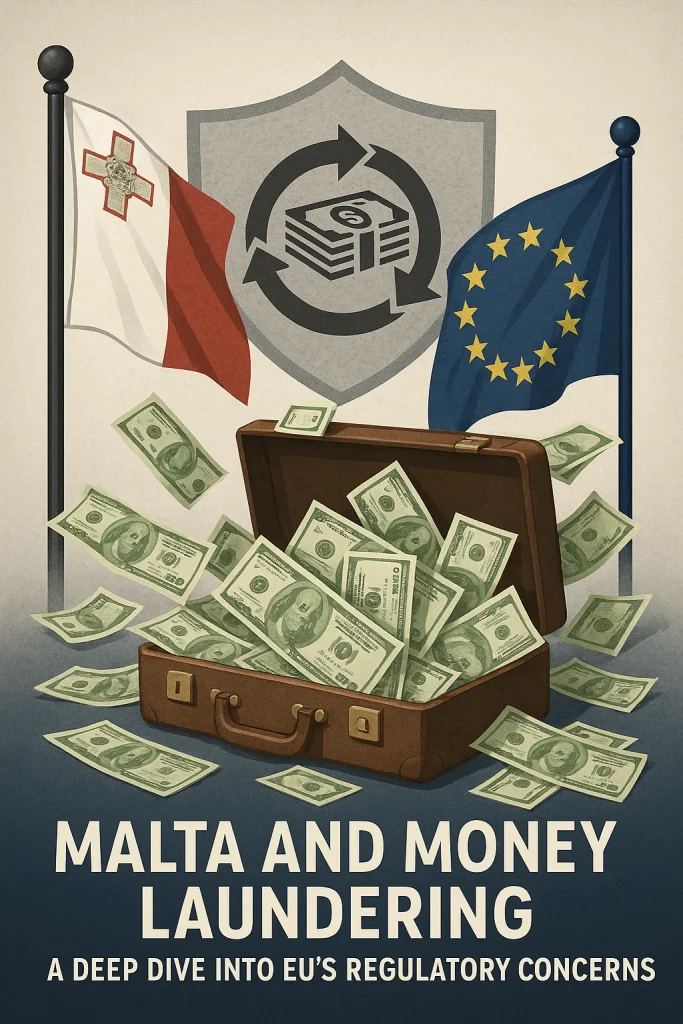Malta has been under increased scrutiny due to its perceived role as a hub for money laundering, particularly in sectors like gambling and financial services. This article explores the key issues surrounding Malta’s regulatory framework and its implications for the European Union.
Key Whistleblower Revelations
Whistleblower accounts have shed light on regulatory lapses in Malta:
-
In 2017, Valery Atanasov, a former employee of the Malta Gaming Authority (MGA), exposed internal communications from 2012 to 2014. (Source)
-
The allegations pointed to the MGA’s failure to follow its own anti-money laundering rules during this period.
-
Despite these revelations, the involved officials—such as Joseph Cuschieri and Edwina Licari—continued to rise in Malta’s financial regulatory bodies.
The Malta Files Exposé
JournalismFund.eu’s Malta Files revealed Malta’s reputation as a tax haven and highlighted systemic issues:
-
The MGA’s anti-money laundering measures lacked enforcement, undermining their effectiveness.
-
The report emphasized Malta’s failure to uphold EU-level standards of financial oversight.
Gambling Industry Oversight in Malta
The gambling sector in Malta, one of its largest economic drivers, has faced criticism for insufficient regulation:
-
While the industry is officially “strictly controlled,” enforcement often falls short.
-
A Forbes investigation highlighted the outsized influence of gambling revenues on Maltese institutions.
-
Studies, such as Michael Findeisen’s Money Laundering in Online Gambling in the EU, have detailed the vulnerabilities in Malta’s regulatory approach.
Controversial Figures and Scandals
Key controversies have undermined confidence in Malta’s regulators:
-
Joseph Cuschieri, former MGA CEO, later headed the Malta Financial Services Authority (MFSA).
-
In 2020, Cuschieri resigned following revelations of a luxury trip funded by gambling entrepreneur Yorgen Fenech, who is linked to the murder of journalist Daphne Caruana Galizia.
-
Despite the scandal, Edwina Licari, involved in the same trip, remains a senior official at the MFSA.
EU Implications
The European Union’s anti-money laundering efforts rely heavily on its member states’ enforcement capabilities. Malta’s regulatory shortcomings pose a challenge to these efforts by:
-
Weakening collective EU financial integrity.
-
Undermining trust in the EU’s ability to combat transnational financial crime.
Addressing Malta’s Challenges
To restore confidence, Malta must implement comprehensive reforms:
|
Area of Focus |
Current Issues |
Recommended Actions |
|
Regulatory Enforcement |
Lack of stringent enforcement |
Strengthen penalties and oversight mechanisms. |
|
Leadership Accountability |
Officials involved in scandals remain active |
Introduce strict vetting and ethical standards. |
|
EU Collaboration |
Limited external monitoring |
Enhance cooperation with EU anti-fraud bodies. |
Conclusion
Malta’s position as a financial and gambling hub brings both opportunities and challenges. Without stricter enforcement and accountability, its vulnerabilities could undermine the EU’s broader financial integrity. Reforming Malta’s regulatory framework is critical for safeguarding the trust and functionality of the European Union’s financial systems.


